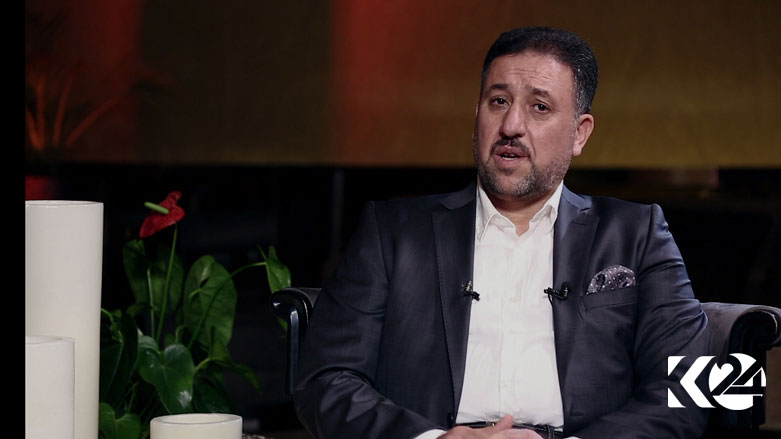Sunni politicians slam empty gestures in Baghdad, call for real action against corruption
Iraqi Sunni-Muslim politicians on Monday criticized Baghdad’s recent suspension of the Electricity Minister for failing to strike at the heart of “rampant corruption” in the oil-rich country.

ERBIL (Kurdistan 24) – Iraqi Sunni-Muslim politicians on Monday criticized Baghdad’s recent suspension of the Electricity Minister for failing to strike at the heart of “rampant corruption” in the oil-rich country.
On Sunday, Iraqi Prime Minister Haider al-Abadi suspended his Minister of Electricity, Qassim al-Fahdawi, as people across central and southern provinces continue to protest the lack of public services and widespread corruption.
Khamis al-Khanjar, Secretary-General of the Arab Project in Iraq, said Abadi’s move against Fahdawi would be of no consequence in the fight against the “scourge of corruption.”
“The chaos that has plagued our country, spurred by insufficient services, cannot be blamed on a single person or one ministry and [won’t be solved] by the sacking of one Minister,” Khanjar said on his official Facebook page.
“We have to recognize that the scourge of corruption that is rotting away most of the parts of the state is a greater threat,” Khanjar argued.

Former Vice-President of Iraq, who was to sentenced to death in absentia, Tariq al-Hashimi, said that any Minister in the Iraqi government who remains “weak” lacks one of three things, but first and foremost, Tehran’s support.
“Ministers in Iraq are weak, and it is possible to remove them for any number of reasons, with just the stroke of a pen, if they are not protected by a corrupt mafia, a tribal militia, or support from the [Shia] Islamic Jurists,” Hashimi wrote on social media on Monday.
“The Minister of Electricity, who has been accused of failure, was sacked, but when will a successful minister be rewarded? Where are the successful ministers? Nowhere is the answer!” Hashimi concluded.
Hashimi, a senior Sunni politician, during a visit to Erbil, took refuge in the Kurdistan Region upon learning the central government, led by Nouri al-Maliki, had issued an arrest warrant against him in December 2011. At the time, Baghdad accused him of running death squads to assassinate Shia officials in the capital.
Shortly after, he left for Turkey where he is rumored to have stayed or flown to Qatar.
Over the past three weeks, central and southern provinces of Iraq have witnessed raging protests over inadequate public services, constant electricity outages in Iraq’s blistering hot summer, and widespread corruption in government institutions.
At least 14 people have been killed during the protests so far and hundreds more were wounded in clashes with Iraqi security forces.
On Saturday, Abadi sacked five local election officials after they were charged with acts of corruption committed during Iraq’s national election on May 12.
Abadi’s orders come two days after Iraq’s top Shia cleric, Grand Ayatollah Ali al-Sistani, urged the Iraqi government to fight corruption and ease unrest in the country.
“We have to reconsider all aspects of government performance,” Khanjar concluded.
Editing by Nadia Riva
